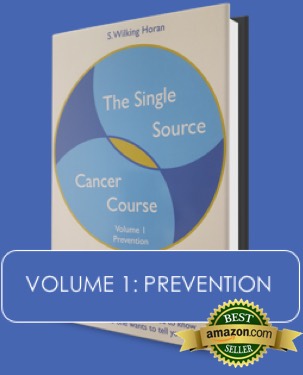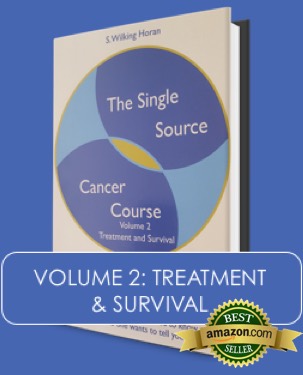 COPING WITH A CRISIS
COPING WITH A CRISIS
Hello everyone and welcome to another FACTUAL FRIDAY. Most of us have been experiencing lock downs and quarantines for several months now. And some of us are facing a second lock down as the month of July presses on.
During this year of Covid-19, our worlds have been turned upside down. Unprecedented change has been forced upon us along with uncertainty, chaos and confusion.
You may find yourself feeling sad, irritable, fatigued and absent minded. You may be experiencing sore muscles and joints, headaches, nightmares and a loss of quality sleep. You may be feeling frightened, worried, and an uncomfortable sense of being on guard every moment.
If so, please know that you are not alone. The unexpected and unwanted changes the Pandemic has brought into our lives are very real and so are the reactions and responses we are experiencing. And as the crisis continues, it’s only normal and natural for us to become overwhelmed and occasionally feel helpless and even perhaps, hopeless.
Burnout is a term psychologically recognized as a “state of emotional, mental and often physical exhaustion brought on by prolonged or repeated stress.” And there is no doubt that many of us experiencing the above symptoms are in the clutches of a Covid-19 burnout.
While we can’t control the circumstances of this Covid crisis, health experts agree there are many things we all can do to take care of ourselves and our loved ones to protect against the negative effects of this particular burnout. Of course, we’ve discussed some of these before, yet during this tumultuous time they bear repeating.
So, please come with me as we examine five ways we can fight and minimize the uncomfortable and unwanted effects of Covid burnout in our lives.
PRACTICE SELF-CARE
In health and wellness, we speak and write a lot about self-care. And self-care has never been more important than it is now. Try to eat healthy foods and make sure you drink plenty of water. Vitamins, minerals and proper hydration will help relax your body, calm your mind and maintain emotional balance. Exercise every day even if that means you only stretch for a few minutes in the morning and evening. Try to get some fresh air and practice a little deep breathing or meditation. Get enough rest. Have a warm bath. Treat yourself to a cup of tea. Anything that temporarily removes us from negative thoughts and helps us focus on things for which we are grateful will help during these difficult days.
CONTINUE TO CONNECT
We may not be able to share real facetime with each other right now, but we can connect in other ways. Make two telephone calls every day to people you know. Schedule virtual Zoom sessions with friends and family. Catch up with colleagues by daily texts and emails. Sit down and write an actual handwritten note every day to a loved one who probably needs a lift themselves. Forgetting about yourself and focusing on the needs of others will do wonders for your own morale and emotional wellbeing.
 KEEP A ROUTINE
KEEP A ROUTINE
Yes, the days right now all seem to run together. Yet, keeping a routine and schedule is great for maintaining a sense of purpose and balance. Plan each day’s activities. Have specific times when you begin work in the morning and stop work at the end of the day. Block out time for exercise, meditating, or online chats with friends. Eat lunch and dinner at the same time each day and plan the menu and recipes beforehand. Set time aside to cook, clean, garden, do laundry and take care of other household chores. Schedule an afternoon break, time with the kids or a walk with your dog. A routine will allow you to take control of your day and to anticipate and look forward to your daily tasks, errands, and free time.
FIND A LITTLE FUN
There really is a silver lining to isolation and self-quarantining and it’s called the internet. There are so many things we can do online, especially now that we all have more time. In addition to virtual chats with family and friends, a wealth of games, movies, and videos are available online. You can virtually visit the great museums, parks and cities of the world. You can find wonderful books to read. You can learn to speak a new language, or play a new card game, or take a class in history or cooking. You can even get a college degree in your favorite subject from your favorite institute of higher learning. The possibilities are nearly endless, so take advantage of this time at home to educate and entertain yourself.
cities of the world. You can find wonderful books to read. You can learn to speak a new language, or play a new card game, or take a class in history or cooking. You can even get a college degree in your favorite subject from your favorite institute of higher learning. The possibilities are nearly endless, so take advantage of this time at home to educate and entertain yourself.
SEEK SUPPORT
Just in case none of the above suggestions seem to help, remember that mental health providers can. If you feel you need more support and outside help contact your primary care physician. He or she can put you in touch with an expert mental health provider. Moreover, these sessions can be conducted via your computer from the safety or your own home through telemedicine. Sometimes all you need is a good talk with someone who truly understands what you’re going through.
These are indeed tough times. Yet by utilizing the above suggestions, our own common sense and the available resources around us, we can move through these difficult days to the other side – together.
Many thanks again everyone for joining me. Until next time, remain calm, be safe, stay in GOOD HEALTH and . . .
TAKE THE COURSE AND TAKE CHARGE!



Leave a Comment